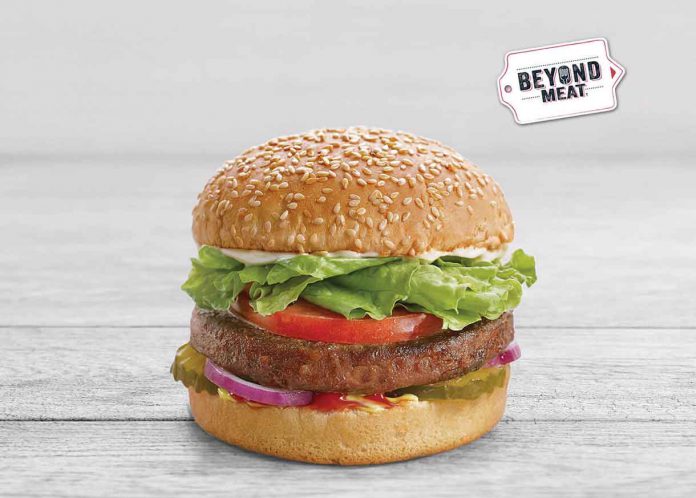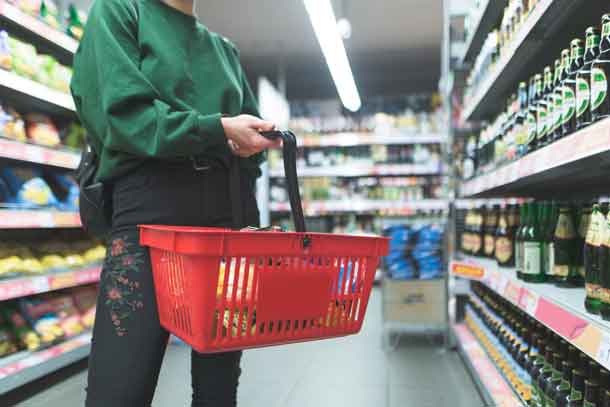Here are seven ways to keep the seasonal revelry going while shrinking carbon footprint
By Thin Lei Win
ROME (Thomson Reuters Foundation) – From cockroach milk to beer made from wastewater, a raft of eco-friendly food trends hit menus and supermarket shelves in 2019 vowing not to add to the world’s carbon emissions.
Here are seven ways to keep the seasonal revelry going while shrinking your carbon footprint:
1. Rise of the flexitarians
Plant-based burgers went mainstream with fast food giants Burger King and McDonald’s joining the fray. Burger King’s Impossible Whopper was so successful there are multiple vegetarian options now being planned.
Fish substitutes are entering the market too, including tuna made from a blend of six legumes and algae oil. Such alternative proteins cut down greenhouse gas emissions associated with livestock farming and industrial-scale fishing.
2. Bugs take centre stage
Grub granola, cockroach milk and silkworm vanilla ice-cream are just a few offerings to make insects less icky and more appealing to diners. Bugs are high in protein and vitamins, but low in emissions and require less land and water.
Some are even hoping farming insects could help clean up palm oil’s tarnished image.
3. Hemp hits a high
With the 2018 Farm Bill legalizing farmers to grow industrial hemp in the United States, cannabidiol (CBD)-infused foods and drinks are here to stay.
Proponents say hemp – from which CBD is derived from – has many sustainable aspects as it can provide food, shelter, clothes and energy.
There is confusion over their safety and legality in both the United States and Britain, but that has not stopped companies like Ben & Jerry’s from announcing plans for their own CBD-based products.
4. Pasta without sauce
To use as straws, of course, as the world steps up efforts to combat plastic pollution.
A Thai supermarket turned to tradition, using banana leaves to wrap fresh produce while consumers are flocking to products such as re-usable beeswax wrappers.
5. Orphaned plants find homes
Neglected plants rich in vitamins and can adapt to the changing climate, including babassu oil from Amazon, millet from India and Mayan spinach from Guatemala, made their way onto plates, championed by pioneering chefs and scientists.
With 75% of the world’s foods coming from just 12 plants and five animal species, expanding the diet is also a good strategy for coping with climate-induced crop failures.
6. Waste not, want not
Restaurants that use almost every part of the raw materials to cut down on food waste popped up in Helsinki, New York and Berlin – the last one also happened to be vegan.
There’s also Trash Tiki, an “anti-waste” cocktail company that uses food scraps – leftover milk, discarded nutshells, coffee grounds, etc – to re-make beloved classics, bringing their ethos to Toronto, Amsterdam and Rome this year.
7. Cheers!
Eco-friendly beers – brewed using recycled or wastewater, doing away with the plastic six-pack rings, or pledging part of the profits to conserve sea turtles – hit the shelves.
Natural wines, which proponents say are made with organic grapes and no chemical additives, thus purer and more environmentally-friendly, also gained major followings in Europe and the United States.
SOURCES:- Thomson Reuters Foundation, Reuters, Whole Foods, Food Navigator, Food and Agriculture Organization, Bioversity International, Institute of Food Technologies, IBM, Trendhunter
(Reporting By Thin Lei Win @thinink, Editing by Belinda Goldsmith Credit the Thomson Reuters Foundation)








